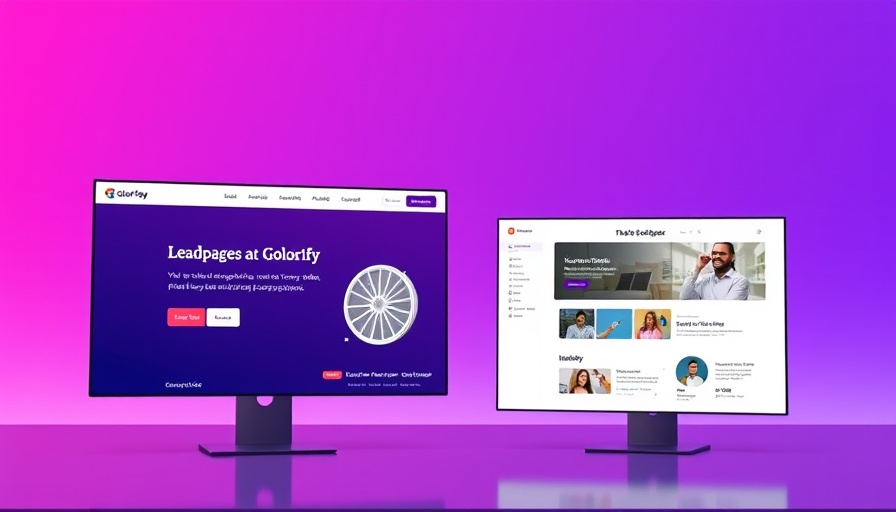
Revolutionizing Marketing: Leadpages and Glorify Join Forces
In an era where digital transformation is pivotal for business growth, Leadpages has made a significant move by acquiring Glorify. This acquisition aims to simplify the way small-to-medium-sized businesses (SMBs) and enterprise marketers create and manage conversion-driven campaigns. With over 300,000 brands, agencies, and businesses relying on Leadpages' no-code tools, this integration is set to offer a more robust solution aimed at maximizing marketing effectiveness.
The Power of No-Code Solutions
No-code platforms have become essential for entrepreneurs and marketers who may lack technical skills. By combining Leadpages' existing capabilities with Glorify's intuitive design tools, users can now create visually stunning landing pages without the need for extensive coding knowledge. This is particularly valuable for marketing teams looking to deploy campaigns quickly and efficiently.
Why This Matters For Marketers
As competition intensifies in digital marketing, the ability to refine conversion strategies becomes crucial. The integration of Glorify into Leadpages promises to streamline the process, allowing for better analytics and design flexibility. This means that marketers can focus more on strategy and content rather than grappling with technical challenges. In a landscape where attention spans are dwindling, effective campaign management is key to capturing and retaining customer interest.
Future Trends and Opportunities
As the marketing landscape evolves with technological advances, we can expect to see a greater push towards automation and simplicity in campaign management. The merger of Leadpages and Glorify aligns perfectly with this trend, enabling more brands to harness their creative potential while ensuring that their marketing efforts are data-driven and impactful.
Conclusion: Embracing Change in Marketing
As Leadpages integrates Glorify's capabilities, marketers should be prepared to adapt their strategies. This acquisition not only signals a shift towards more user-friendly marketing tools but also emphasizes the growing importance of conversion optimization in today's digital landscape. By leveraging these powerful new tools, businesses can expect to enhance their marketing effectiveness while remaining competitive in a rapidly changing environment.
 Add Row
Add Row  Add
Add 




Write A Comment